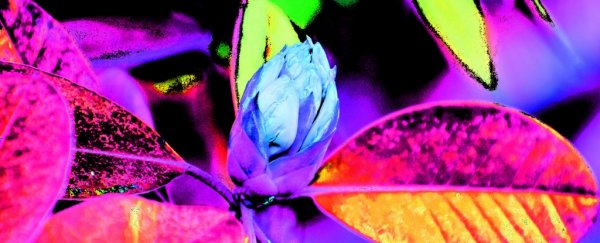A new study on rats in the journal ACS Chemical Neuroscience is one of the first to look at how small doses of the psychedelic drug N,N-dimethyltryptamine, or DMT, affects anxiety and depression symptoms.
The researchers chose to microdose the rats with DMT, administering a small amount (not enough to produce any hallucinogenic side effects), because its basic molecular structure exists in all other psychedelic drugs, according to the National Institutes of Health (NIH).
DMT was also an attractive choice because of its link to ayahuasca, which is typically given during allotted periods that are spread out over time.
The experiment was also designed to be conducted on an intermittent schedule, according to David Olson, lead author of the study and assistant professor in the UC Davis departments of Chemistry, Biochemistry, and Molecular Medicine.
Prior to this, only two other studies looked at microdosing. The studies, both published in 2018, looked at humans rather than animals.
One study observed 30 psychedelic retreat attendees as they tripped on psychedelic truffles, and the other surveyed 21 men through online private messaging about their previous microdosing experiences.
This new study, which lasted for two months, was the longest one yet and did not rely on survey responses.
Researchers conducted a variety of tests on male and female rats after injecting them each with a microdose of the drug to see how the substance, the main psychoactive component in ayahuasca, could potentially affect anxiety and depression symptoms.
After microdosing DMT, the rats appeared less anxious
Over a two month period, researchers gave the rats doses of DMT and ran a variety of tests, including memory tests, a maze test, and a swim test. All of these were chosen because the rats' responses mimic potential human responses to fear, stress, anxiety, depression, and trauma, Olson told INSIDER.
Before any of the tests, the rats were given a higher dose of DMT than during the later microdosing portion of the experiment to see how the substance affected their anxiety levels.
After determining that high doses of DMT caused the rats to be more anxious – they froze in place rather than moving around like they usually do – the researchers began the microdosing.
The researchers conducted memory tests using a mild foot shock and tone sound to test the rats' fear responses to immediate threats and post-traumatic event fear triggers.
The microdoses of DMT had no effects on the rats' immediate fear-related memories, but the creatures did act less anxious and fearful during a trauma-related fear test involving the tone sound.
While microdosing didn't help the rats get over immediate fears, it did help them deal with fear triggers, somewhat akin to what people with PTSD experience.
Other tests found that the microdosed rats showed fewer signs of a depressed-like state and had fewer anxious tendencies.
There were side effects of the microdosing experiment
The microdosing did have some side effects. The male rats gained significant weight during the experiments, but Olson said their body fat percentages remained the same, creating a big question mark for the researchers.
"We have no idea why this happened. They weren't eating more and were actually eating less, and there were no hormone changes either," Olson told INSIDER.
The female rats didn't gain weight, but their neural structures changed and they lost spine density. Olson said this could have been due to the length of treatment and the amount of DMT given, but his team isn't entirely sure.
The study also leaves unanswered questions about how the dosage of DMT could alter the effects it has on anxiety and depression.
And since these experiments were completed with rats, it's hard to say how microdoses of DMT could affect humans with anxiety and depression.
The study does, however, offer some hope for the eventual use of DMT as a therapeutic treatment.
"If you eliminate [psychedelic drugs'] effects on perception, there is no need or reason to abuse them, which could help with creating a medicinal product," Olson said.
This article was originally published by Business Insider.
More from Business Insider:
